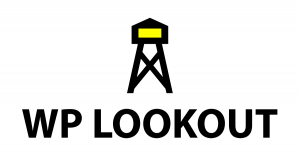A few months ago I had an idea for a new tool and service that I thought could be useful to WordPress developers and agencies who manage lots of WordPress sites, but who can't or don't want to go all in on automatic updates. After spending some time thinking through the details and researching what was already out there, I decided to go ahead and build it.
I started writing code and building features on July 1. A month later in early August I launched the first version to a production environment, and now I'm starting to tell people about it.
 Please, allow me to introduce WP Lookout.
Please, allow me to introduce WP Lookout.
I've already written about why I think this service fills in some important gaps in the WordPress ecosystem so I won't say a lot more about that here. If you're someone who has worked with keeping multiple WordPress sites up to date and secure, hopefully you see the potential benefit. And there are a lot more features I'm excited to be working on.
Even if you don't travel in those circles, perhaps you'll identify with this sentiment: we have all of these things in our lives running software that someone else has written (routers, computers, apps on our phones, the navigation systems in our cars, the firmware on our TVs), and we're supposed to keep them up to date with the latest versions, usually in the name of speed and security. But often that turns into a part time job of logging in to those devices, finding the settings screen where updates are displayed, and trying to understand what's changed and how much it matters. Automatic background updates are helping in some cases. But wouldn't it be nice if these devices and tools could come to us and tell us when they're ready for an update, and what exactly has changed? So, WP Lookout is set to do that for at least one small corner of the Internet.
It's been a while since I've set out to launch and grow a new business from nothing. It's thrilling to again be thinking through architecture, strategy, business model, marketing, finances, legal paperwork, scaling, innovation and all the other pieces that go along with trying to make something thrive for the long term. It's also vulnerable to be putting something out into the world and wondering how it will be received, or if anyone will care.
I'm hopeful that good things are ahead. Regardless, I'm proud of what I've done so far. I've learned a lot along the way — about building a SaaS ("software as a service") business, about how awesome developing with Laravel is (I'll write more about that soon on my tech blog) and about what solutions people who manage multiple WordPress sites might or might not be looking for to make their lives easier.
After I'm a bit further along I'll share more details and updates. In the meantime, please check out WP Lookout.


